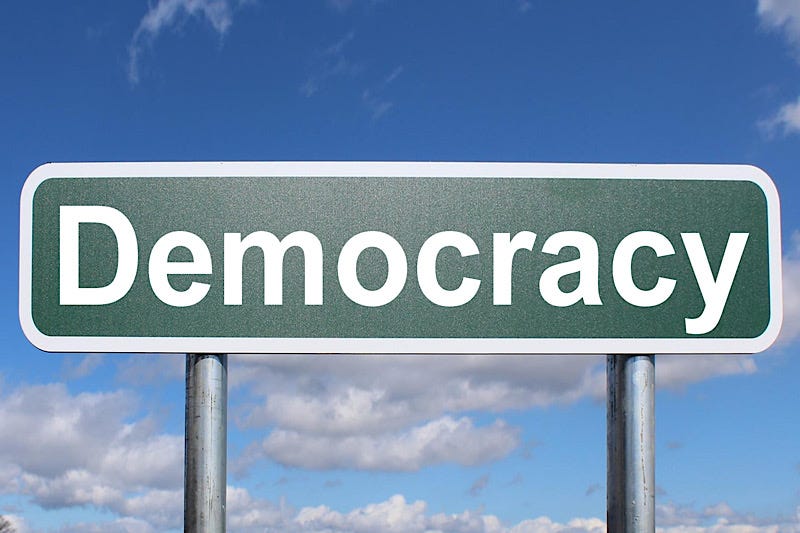
Tomorrow, November 5th, 2024, will be the day citizens of the United States will choose a new president. Both sides seem to think that this election will be historical, one way or the other. Both claim that the American democratic experiment itself is at stake. Both think the other side is garbage or evil. The rest of the world is also very much interested in the outcome, because the US—for good or otherwise—still has an outsized influence on what happens across the planet.
Tomorrow there will be people who will look suspiciously at their neighbors or even family members, and who will be genuinely worried about what comes next. The thing is, we truly don’t know what will come next. The polls are basically 50-50, which means that it is a fool’s errand to make predictions. One side has already announced that it will not accept the results and will challenge them by legal means. Commentators are concerned about the likely possibility of violence. And the uncertainty will probably last way past election night.
I am not going to tell you who I will vote for, nor am I going to present an argument in favor of this or that candidate. I have my opinions, but I have no special expertise in political science. And I’m sure we are all sick and tired of opinions and arguments, which have been thrown at us mercilessly for many months now. Each of us will have to vote their conscience and hopefully manage to be at peace with the outcome.
I am also not going to give an in-depth analysis of all the things that are wrong with the US electoral system, though there certainly are plenty of those to consider. Suffice to say that a recent survey found that the US ranks lowest among liberal democracies.
So what is this essay about, then? Consider it a public edition of my philosophical diary, a technique for reflection and ethical self-improvement that goes back at the least to the Meditations by Marcus Aurelius, and which has been shown to be very helpful by modern cognitive science. Perhaps these notes will be useful to you as well.
One of the most important concepts in Stoicism is also one of the most useful when facing the outcome (and aftermath) of a national election. I’m talking, of course, about Epictetus’s fundamental rule:
“Up to us are will and everything that results from will; not up to us are the body, the parts of the body, possessions, parents, brothers, children, the country of our birth, and in short, all the people with whom we associate.” (Discourses, 1.22.10)
Epictetus makes a sharp distinction between facts—which are out there, independent of our minds and, often, of our actions—and value judgments—which are the result of our prohairesis, our will, or reasoning faculty. Things out there do not come with labels attached to them that tell us whether they are good or bad. We evaluate those things, so-called externals, and decide whether they are good, bad, neutral, or whatever. Even things that may at first sight appear to be obviously bad, like death, can be assessed to be otherwise:
“People are troubled not by things but by their judgments about things. Death, for example, isn’t frightening, or else Socrates would have thought it so.” (Enchiridion, 5a)
So here are is the first practical lesson: I need to ask myself what, concerning the election, is or is not up to me. Up to me is the judgment of which candidate to prefer and why; also up to me is the judgment that such candidate deserves some of my money to help their campaign, and of course my vote tomorrow. Up to me, moreover, is to talk to people about what is going on in an attempt not to persuade but to reason together. That’s it. Everything else is not up to me. I don’t control the outcome of the election, whether such outcome will be recognized or overturned, whether people will respond civilly or with violence, what the courts will do about it, and so on. According to Epictetus, I need to do what is up to me and then prepare to accept what is not up to me with equanimity.
Keep reading with a 7-day free trial
Subscribe to The Philosophy Garden: Stoicism and Beyond to keep reading this post and get 7 days of free access to the full post archives.



